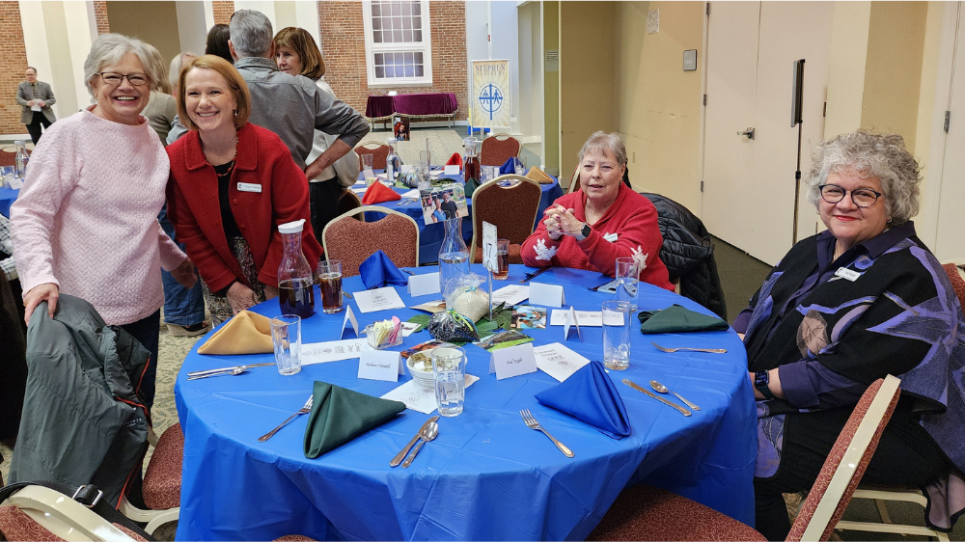UNITING VISION
We believe every person is created in the image of God, and that the saving grace offered in Jesus Christ extends to all people. We, a people of hopeful curiosity, therefore welcome and include all persons without exception, so that they will come to know and experience God’s love in the community of the Holy Spirit.
- We will create a culture of welcoming, hospitality, and engagement in all aspects of our ministry. We will not be content to minister only to “those who enter our doors,” but strive to engage persons who have no family of faith.
- We will identify and address barriers to participation in our faith community (i.e., physical accessibility, prejudice, classism, and so on).
- We will equip our congregation to participate in listening and conversation having to do with challenging topics, and thereby model and build healthy relationships.
We believe that the Christian faith is a lifelong journey, enabling us to grow closer to God and to our neighbor. We therefore will guide all those in the faith-life of WUMC to take deliberate steps to deepen their relationship with Christ, so that as transformed people we may share in the work of the God Who redeems Creation.
- We will create “a culture of faith formation” through small-group ministry.
- We will develop a faith-formation process to engage and transform persons of all ages, through intentional study, spiritual disciplines and the work of serving others.
- We will equip and empower our disciples to care for one another through all seasons of life.
We believe God has taken the initiative to bind us together as a family amid our differences, in order to embody a spirit of reconciliation and love for our neighbors. We therefore will strive to address the greatest needs and areas of pain within Williamsburg and our surrounding community, so that all people have access to what we need to thrive together.
- We will sacrificially share our time, talents, gifts and witness in areas of our community’s and world’s greatest needs.
- We will employ our building and grounds in new ways to engage and relate to our local community.
- We will partner with other faith communities and community organizations that are already striving to make a difference locally and globally.



